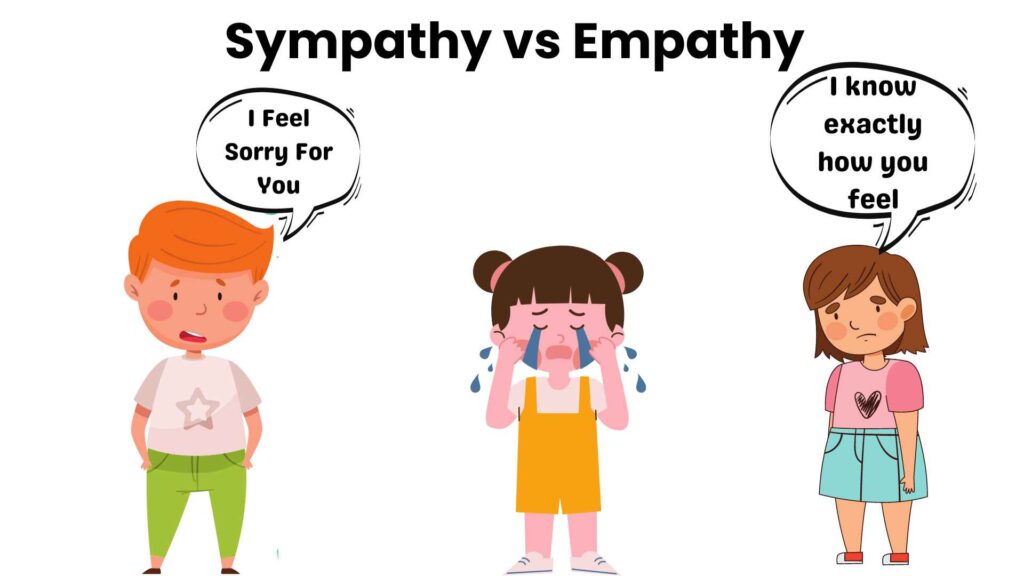यौन स्वास्थ्य के सभी पहलुओं के लिए व्यापक जानकारी प्राप्त करें और अपने यौन कल्याण को सशक्त बनाने के लिए संसाधन और मार्गदर्शन खोजें।
The pelvic floor muscles are the unsung heroes of our body’s core, providing support to…
यौन स्वास्थ्य के सभी पहलुओं के लिए व्यापक जानकारी प्राप्त करें और अपने यौन कल्याण को सशक्त बनाने के लिए संसाधन और मार्गदर्शन खोजें।
The pelvic floor muscles are the unsung heroes of our body’s core, providing support to…
Achieving and maintaining a strong penile erection is a common concern for many men. It…
The underlying cause as well as the severity of pain determine the varied treatment approaches…
Erectile dysfunction (ED) means having trouble getting or keeping an erection that’s good enough for…
Erectile dysfunction (ED) is a condition that many men face at some point in their…
Erectile dysfunction (ED) is a condition that affects many men worldwide, leading to significant stress,…
Assertiveness is a crucial skill that enhances communication, reduces stress, and promotes self-confidence. It enables…
In its simplest form, empathy entails recognizing emotions in others and understanding their perspectives on a situation. At its most developed, it empowers individuals to utilize that insight to enhance someone else’s mood and provide support during challenging situations.
विषयसूची
विषयसूचीUnderstanding what other people feel emotionally, seeing things from their perspective, and imagining oneself in their place constitute empathy. Essentially, it involves putting oneself in someone else’s position and experiencing their emotions.
Empathy enables individuals to instantly envision themselves undergoing the same experiences and feeling the same emotions as another person when they witness them suffering, such as after the loss of a loved one.
While individuals can be well-attuned to their own feelings and emotions, entering into someone else’s mindset can prove more challenging. The ability to empathize allows individuals to “walk a mile in another’s shoes,” so to speak, and understand the emotions others are experiencing.
This is the ability to understand another person’s thoughts or emotions, and doesn’t require any emotional involvement from the observer.
It primarily operates on a rational, intellectual level, devoid of any emotional bias.
Also known as affective empathy, it goes beyond merely understanding another person’s feelings—it involves experiencing and sharing those emotions, fostering a deeper connection.
However, for some individuals with heightened empathic tendencies, it can become overwhelming, leading to immersion in others’ problems or pain, potentially harming their own emotional well-being, especially if they struggle to resolve the situation.
To mitigate emotional generosity burnout, it’s essential to take breaks, establish boundaries, and develop coping mechanisms for managing the demands of empathizing with others.
This represents the most proactive manifestation of empathy, entailing not only feeling concern for another person and sharing their emotional burden but also taking tangible steps to alleviate their distress.

If you’re curious about whether you possess empathetic traits, here are some indicators:
The ability to empathize offers numerous advantages:
Empathizing enables you to forge deeper social bonds by comprehending others’ thoughts and emotions, thus allowing appropriate responses in social interactions. Studies indicate that fostering social connections contributes significantly to both physical and psychological well-being.
Empathizing with others aids in honing your emotional regulation skills. Effective emotional regulation enables you to manage your own emotions, even amidst intense stress, without succumbing to overwhelm.
It promotes altruistic actions. Individuals tend to engage more readily in helpful behaviors when they empathize with others. Moreover, reciprocally, individuals experiencing empathy are more inclined to extend assistance when empathizing with someone in need.
Despite any personal opinions about your friend’s relationship, you set aside judgment and focus on her feelings when she confides in you about her break-up. Offering a comforting hug, you attentively listen as she expresses her emotions.
Upon witnessing your employee’s distress after dealing with an irate customer, you empathetically acknowledge her emotions by saying, “I’m so sorry that happened. Being yelled at is awful. Take some time if you need it.”
Despite your busy schedule and upcoming commitments, you prioritize caring for your sick spouse. Instead of dwelling on personal concerns, you make them a cup of tea and provide support, demonstrating empathy through your actions.
Demonstrating empathy extends beyond human interactions. When faced with the difficult decision of euthanizing a beloved pet suffering from illness or pain, you prioritize their comfort and well-being, making the compassionate choice to end their suffering.
Empathetic leadership entails understanding the needs of others and being mindful of their emotions and thoughts. It is a vital skill.
Research indicates a positive correlation between workplace empathy and job performance. Managers who practice empathetic leadership toward their direct reports receive higher performance evaluations from their superiors. Additionally, managers rated as empathetic by their subordinates are also perceived as high performers by their own bosses.
Demonstrating empathy in the workplace, a cornerstone of emotional intelligence and effective leadership enhances human interactions and fosters improved communication and positive outcomes, both professionally and personally.
This is the inability to comprehend the experiences or emotions of others, leading to behaviors perceived as indifferent or even hurtful.
For instance, individuals with low affective empathy exhibit higher tendencies toward cyberbullying.
Additionally, a deficiency in empathy serves as a defining trait of narcissistic personality disorder.
Factors that contribute to the absence of empathy:
People’s perceptions of the world can be influenced by cognitive biases.
For example, individuals often attribute others’ failures to internal characteristics while attributing their own shortcomings to external factors.
These biases make it challenging to recognize all the contributing factors to a situation and hinder the ability to adopt another’s perspective.
Many individuals mistakenly believe that those who differ from them do not experience emotions or behave similarly. This mindset is especially prevalent when individuals perceive a physical or cultural distance between themselves and others.
For example, when observing reports of disasters or conflicts in distant lands, individuals may struggle to empathize if they perceive the suffering individuals as fundamentally different from themselves.
In some instances, individuals erroneously blame victims for their circumstances.
This tendency is evident when victims of crimes are questioned about what they could have done differently to prevent the crime.
Such behavior often arises from the human desire to perceive the world as fair and just, leading individuals to believe that people receive what they deserve. This belief can falsely reassure individuals that they are immune to experiencing similar misfortune.
If you’re interested in developing your empathy skills, here are a few strategies to consider:

Empathy and sympathy are often mistaken for one another, but they entail distinct concepts.
Sympathy typically involves a feeling of concern for someone’s well-being and a recognition that they could experience greater happiness. It can be seen as a “feeling for” someone.
In contrast, empathy transcends sympathy as it involves “feeling with” the individual, achieved through an imaginative understanding of their emotions and experiences.
While sympathy may arise from witnessing someone’s distress, such as seeing someone in tears on the street, it doesn’t necessarily require a shared perspective or emotional resonance. Unlike empathy, sympathy doesn’t entail experiencing the other person’s feelings firsthand.
Although sympathy may serve as a precursor to empathy, the two concepts remain separate, with empathy involving a deeper level of emotional connection and understanding.
Empathy, sympathy, and compassion are distinct concepts.
Sympathy and compassion involve feeling for someone, recognizing their distress, and acknowledging their suffering.
While compassion adds an element of action, sympathy focuses solely on acknowledging the pain, although both words share the same root.
In contrast, empathy revolves around experiencing those emotions as if they were your own, achieved through the power of imagination
Empathy fatigue can arise when individuals become excessively preoccupied with and consistently internalize the emotions of others. This persistent absorption can drain one’s energy reserves, leading to feelings of numbness, burnout, powerlessness, and diminished compassion. Consequently, individuals may find themselves at an elevated risk of experiencing empathic distress.
While some individuals may lack empathy, the majority of people possess the capacity to empathize with others across various situations. This ability to comprehend another person’s viewpoint and share in their emotions holds significant value in our social interactions. Empathy enables us to grasp the experiences of others and frequently motivates us to intervene and alleviate their distress.
संदर्भ
एमबीबीएस और एमडी डिग्री वाली मेडिकल डॉक्टर डॉ. निष्ठा पोषण और कल्याण के प्रति गहरी रुचि रखती हैं। शारीरिक और मानसिक स्वास्थ्य के साथ महत्वपूर्ण संघर्षों से भरी उनकी व्यक्तिगत यात्रा ने उन्हें अनगिनत व्यक्तियों के सामने आने वाली चुनौतियों के प्रति एक अद्वितीय सहानुभूति और अंतर्दृष्टि प्रदान की है। अपने स्वयं के अनुभवों से प्रेरित होकर, वह व्यावहारिक, साक्ष्य-समर्थित मार्गदर्शन प्रदान करने के लिए अपनी पृष्ठभूमि का लाभ उठाती है, जिससे दूसरों को समग्र कल्याण प्राप्त करने के रास्ते पर सशक्त बनाया जा सके। डॉ. निष्ठा वास्तव में मन और शरीर के अंतर्संबंध में विश्वास करती हैं। वह जीवन में संतुलन और खुशी प्राप्त करने की दिशा में एक महत्वपूर्ण कदम के रूप में इस संबंध को समझने के महत्व पर जोर देती है।

